The Empire of Effects: Industrial Light and Magic and the Rendering of Realism
Just about every major film now comes to us with an assist from digital effects. The results are obvious in superhero fantasies, yet dramas like Roma also rely on computer-generated imagery to enhance the verisimilitude of scenes. But the realism of digital effects is not actually true to life. It is a realism invented by Hollywood—by one company specifically: Industrial Light & Magic.
The Empire of Effects shows how the effects company known for the puppets and space battles of the original Star Wars went on to develop the dominant aesthetic of digital realism. Julie A. Turnock finds that ILM borrowed its technique from the New Hollywood of the 1970s, incorporating lens flares, wobbly camerawork, haphazard framing, and other cinematography that called attention to the person behind the camera. In the context of digital imagery, however, these aesthetic strategies had the opposite effect, heightening the sense of realism by calling on tropes suggesting the authenticity to which viewers were accustomed. ILM’s style, on display in the most successful films of the 1980s and beyond, was so convincing that other studios were forced to follow suit, and today, ILM is a victim of its own success, having fostered a cinematic monoculture in which it is but one player among many.
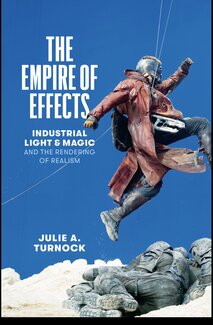
Hatred of Sex
Hatred of Sex links Jacques Rancière’s political philosophy of the constitutive disorder of democracy with Jean Laplanche’s identification of a fundamental perturbation at the heart of human sexuality. Sex is hated as well as desired, Oliver Davis and Tim Dean contend, because sexual intensity impedes coherent selfhood and undermines identity, rendering us all a little more deplorable than we might wish. Davis and Dean explore the consequences of this conflicted dynamic across a range of fields and institutions, including queer studies, attachment theory, the #MeToo movement, and “traumatology,” demonstrating how hatred of sex has been optimized and exploited by neoliberalism.
Advancing strong claims about sex, pleasure, power, intersectionality, therapy, and governance, Davis and Dean shed new light on enduring questions of equality at a historical moment when democracy appears ever more precarious.
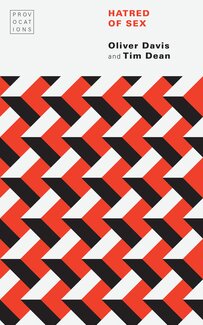
Textual Identities in Early Medieval England: Essays in Honour of Katherine O'Brien O'Keeffe
Throughout her career, Professor Katherine O'Brien O'Keeffe has focused on the often-overlooked details of early medieval textual life, moving from the smallest punctum to a complete reframing of the humanities' biggest questions. In her hands, the traditional tools of medieval studies -- philology, paleography, and close reading - become a fulcrum to reveal the unspoken worldviews animating early medieval textual production. The essays collected here both honour and reflect her influence as a scholar and teacher. They cover Latin works, such as the writings of Prudentius and Bede, along with vernacular prose texts: the Pastoral Care, the OE Boethius, the law codes, the Anglo-Saxon Chronicle, and Ælfric's Lives of Saints. The Old English poetic corpus is also considered, with a focus on less-studied works, including Genesis and Fortunes of Men. This diverse array of texts provides a foundation for the volume's analysis of agency, identity, and subjectivity in early medieval England; united in their methodology, the articles in this collection all question received wisdom and challenge critical consensus on key issues of humanistic inquiry, among them affect and embodied cognition, sovereignty and power, and community formation.
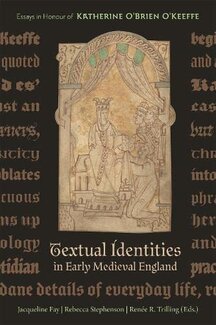
Resisting Medical Tyranny: Why the COVID-19 Mandates Are Criminal
Starting with the outbreak of the COVID-19 pandemic, the American people have been continually subjected to an endless stream of totalitarian medical orders by the highest level officials of the United States government and state governments from both political parties; by federal, state, and local public health authorities; by life scientists; and by doctors. This book debunks the scientific basis for their edicts. This book proves that the COVID vaccines and their related mandates violate the Nuremberg Code on Medical Experimentation that the United States government used to prosecute, convict, and execute Nazi doctors at Nuremberg. The COVID vaccines and their related mandates are a Nuremberg Crime against Humanity under international criminal law. This book sets forth legal strategies and arguments for the American people and their lawyers to fight back against this medical tyranny that is being ruthlessly imposed upon us by these scientific and medical elites by using criminal law, constitutional law, and international law. This book is essential reading for any concerned citizen who wants to stop dead in its tracks this developing American medical police state and to hold legally accountable those responsible for the COVID-19 pandemic and its lethal consequences for now one million of their fellow Americans.
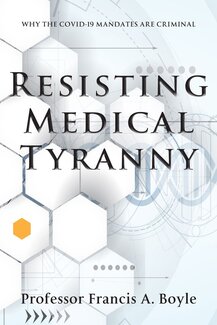
Revolutionary Life: The Everyday of the Arab Spring
From the standpoint of revolutionary politics, the Arab Spring can seem like a wasted effort. In Tunisia, where the wave of protest began, as well as in Egypt and the Gulf, regime change never fully took hold. Yet if the Arab Spring failed to disrupt the structures of governments, the movement was transformative in farms, families, and factories, souks and schools.
Seamlessly blending field research, on-the-ground interviews, and social theory, Asef Bayat shows how the practice of everyday life in Egypt and Tunisia was fundamentally altered by revolutionary activity. Women, young adults, the very poor, and members of the underground queer community can credit the Arab Spring with steps toward equality and freedom. There is also potential for further progress, as women’s rights in particular now occupy a firm place in public discourse, preventing retrenchment and ensuring that marginalized voices remain louder than in prerevolutionary days. In addition, the Arab Spring empowered workers: in Egypt alone, more than 700,000 farmers unionized during the years of protest. Labor activism brought about material improvements for a wide range of ordinary people and fostered new cultural and political norms that the forces of reaction cannot simply wish away.
In Bayat’s telling, the Arab Spring emerges as a paradigmatic case of “refolution”—revolution that engenders reform rather than radical change. Both a detailed study and a moving appeal, Revolutionary Life identifies the social gains that were won through resistance.
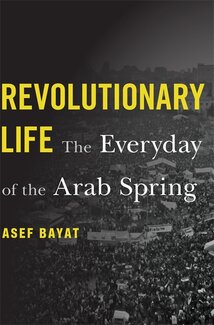
Chronic Aftershock: How 9/11 Shaped Present-Day France
The terrorist attacks of 11 September 2001 were a local event that nevertheless elicited strong reactions throughout the world. The unprecedented strike on the continental United States, its instantaneous broadcast, and its global stakes placed 9/11 at the centre of ideological debates that still rage today. The impact was especially felt in France.
Chronic Aftershock looks at the significance of 9/11 in France as documented by prominent politicians, public intellectuals, journalists, sociologists, political scientists, philosophers, novelists, and conspiracy theorists. In his comprehensive account Jean-Philippe Mathy addresses the rise of a small but influential group of self-described “anti-anti-Americans” who shared the views of American neoconservatives in support of regime change in Iraq; the media controversy involving French Evangelical churches’ response to the religious views of George W. Bush; the widespread “I am Charlie” movement following the attacks against the offices of Charlie Hebdo; and the unending French national debate on the place of the Muslim community in a secular, universalist republic. The book also considers the November 2015 Islamist attacks in Paris, often described as “the French September 11.”
Combining approaches from intellectual history, cultural studies, and literary criticism, Chronic Aftershock explores the legacy of 9/11 and recent instances of transatlantic divide to provide an innovative and timely assessment of the radicalized violence that remains a major threat in today’s world.
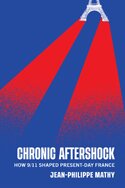
The Archaeology of Craft and Industry
In this expansive yet concise survey, Christopher Fennell discusses archaeological research from sites across the United States that once manufactured, harvested, or processed commodities. Through studies of craft enterprise and the Industrial Revolution, this book uncovers key insights into American history from the seventeenth through the nineteenth centuries.
Exploring evidence from textile mills, glassworks, cutlery manufacturers, and tanneries, Fennell describes the complicated transition from skilled manual work to mechanized production methods, and he offers examples of how artisanal skill remained important in many factory contexts.
Fennell also traces the distribution and transportation of goods along canals and railroads. He delves into sites of extraction, such as lumber mills, copper mines, and coal fields, and reviews diverse methods for smelting and shaping iron. The book features an in-depth case study of Edgefield, South Carolina, a town that pioneered the production of alkaline-glazed stoneware pottery. Fennell outlines shifts within the field of industrial archaeology over the past century that have culminated in the recognition that these locations of remarkable energy, tumult, and creativity represent the lives and ingenuity of many people. In addition, he points to ways the field can help inform sustainable strategies for industrial enterprises in the present day.
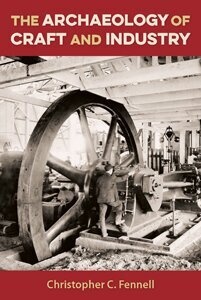
The Lockean Mind
John Locke (1632–1704) is considered one of the most important philosophers of the modern era and the first of what are often called ‘the Great British Empiricists.’ His major work, An Essay Concerning Human Understanding, was the single most widely read academic text in Britain for fifty years after its publication and set new limits to the scope and certainty of what we can claim to know about ourselves and the natural world. The Declaration of Independence and the United States Constitution were both highly influenced by Locke’s libertarian philosophical ideas, and Locke continues to have an impact on political thought, both conservative and liberal. It is less commonly known that Locke was a practicing physician, an influential interpreter of the Bible, and a policy maker in the English Carolina colonies.
The Lockean Mind provides a comprehensive survey of Locke’s work, not only placing it in its historical context but also exploring its contemporary significance. Comprising almost sixty chapters by a superb team of international contributors, the volume is divided into twelve parts covering the full range of Locke’s thought:
- Historical Background
- Locke’s Interlocutors
- Locke’s Epistemology
- Locke’s Philosophy of Mind
- Locke on Philosophy of Language and Logic
- Locke’s Metaphysics
- Locke’s Natural Philosophy
- Locke’s Moral Philosophy
- Locke on Education
- Locke’s Political Philosophy
- Locke’s Social Philosophy
- Locke on Religion
Essential reading for students and researchers in philosophy, Locke’s work is central to epistemology; metaphysics; philosophy of mind; philosophy of language; natural philosophy; ethical, legal-political, and social philosophy; as well as philosophy of education and philosophy of religion. This volume will also be a valuable resource to those in related humanities and social sciences disciplines with an interest in John Locke.
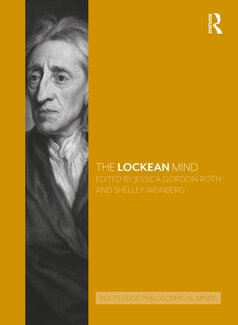
The Edinburgh Companion to Irish Modernism
The Edinburgh Companion to Irish Modernism presents a fresh perspective on received understandings of Irish modernism. The introduction draws connections between modernism in the arts and modernism as a resistant, liberal, relativist movement within the Catholic Church that was gathering momentum in the same period. In religion as in culture, resistance to orthodoxy has persisted, and for this reason this companion explores modernist heresies – cultural, aesthetic, critical, epistemological – that stretch back to the late nineteenth-century and forward to present day. Contributors widen the temporal, conceptual, generic, and geographical definitions of Irish modernism by investigating crosscurrents between literary form and cultural transformation through the twentieth and twenty-first centuries. The book enriches the canon of Irish modernism by recovering lesser-known works by both neglected and canonical writers, especially women poets and novelists.
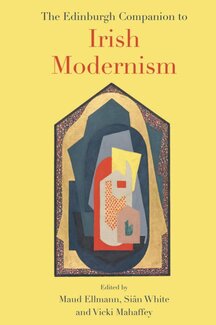
Formless Formation: Vignettes for the End of this World
Formless Formation is an experimental project conceived and co-authored by two performance theorists working in critical aesthetics and political thought. The book is an insurgent revolt, walking side by side with plural and planetary anticolonial forces organizing against debt, expropriative extractive capital, environmental catastrophe, and the militarized policing of people and borders. It is in direct conversation with all Indigenous, Black, Brown, ecological, feminist, queer, diaspora movements and struggles countering capitalist predatory formations across time and space. Through shared resonances across differing aesthetic-life-worlds and solidarities that bypass the nation-state, Ruiz and Vourloumis bring to the forefront performative and aesthetic practices and methods that address current and future social organizing.
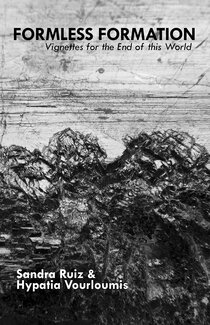
100 English Building
608 South Wright Street
Urbana, Illinois 61801